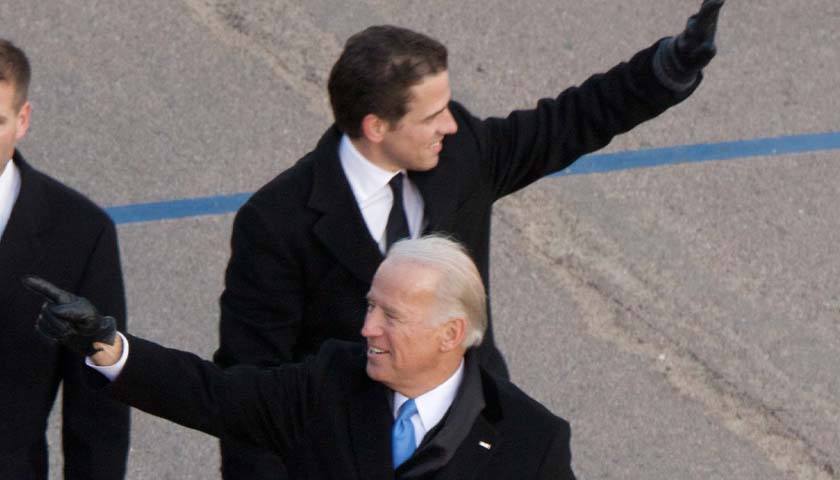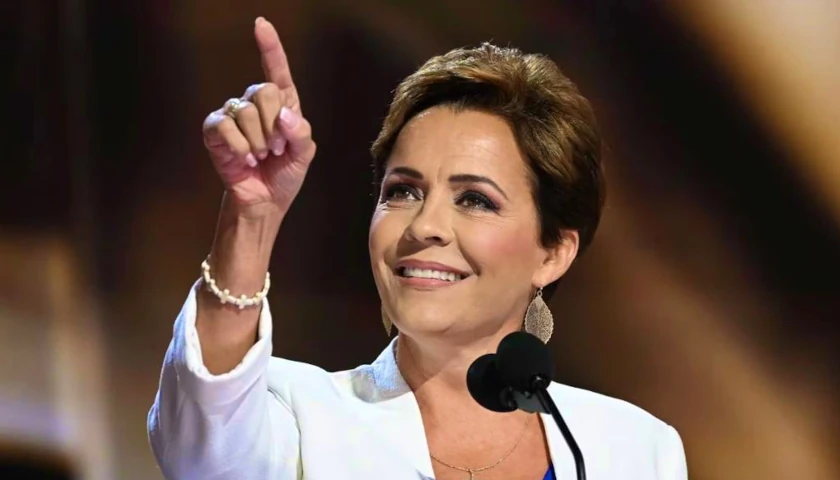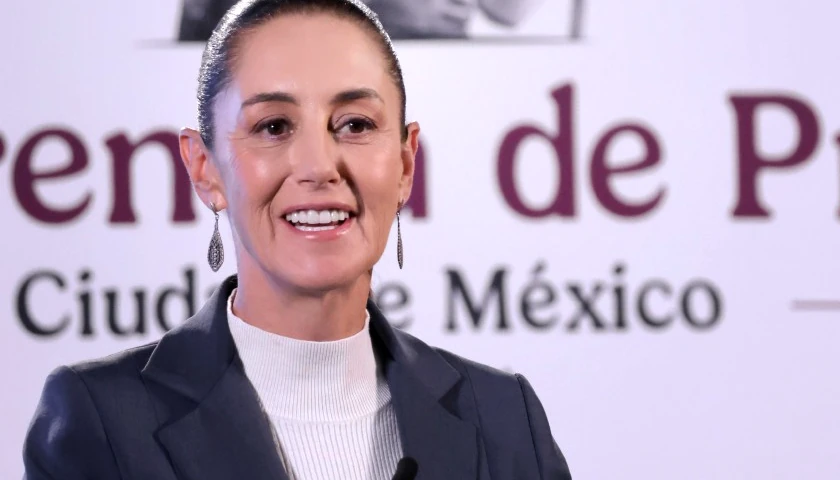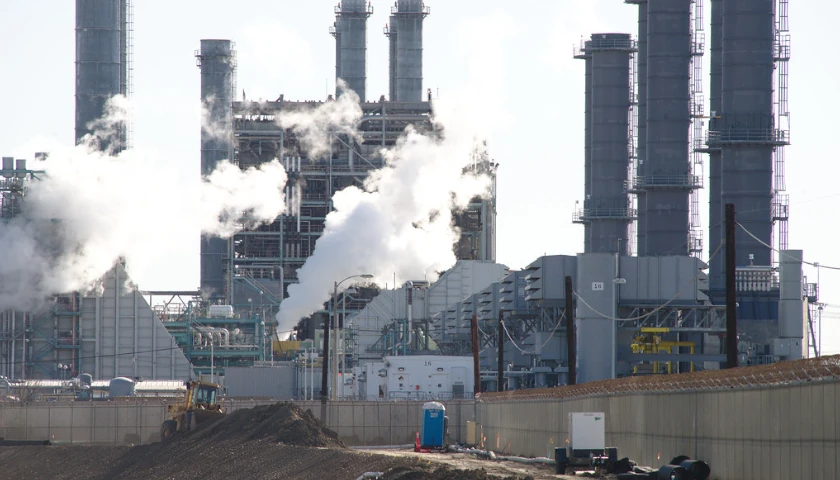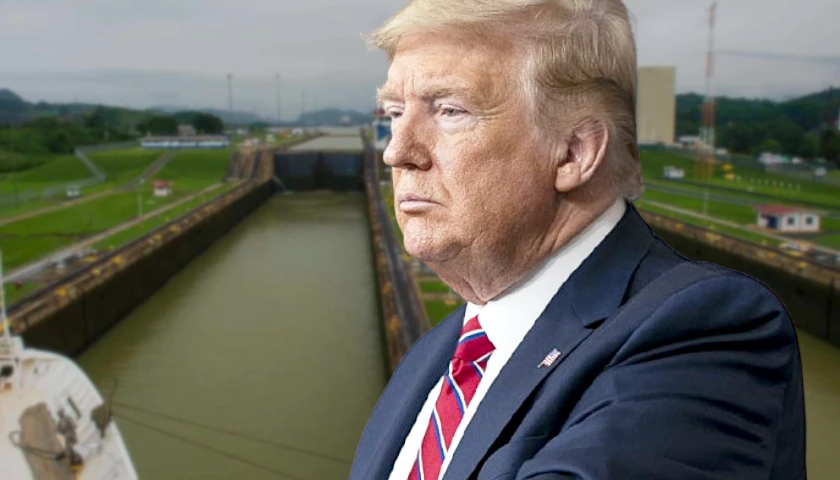by John Solomon and Steven Richards
While most Americans were preparing for the November 2015 Thanksgiving holiday, top policy advisers to Joe Biden were scurrying to put the finishing touches on the then-vice president’s upcoming trip to Kyiv where he planned to deliver a momentous shock to the U.S.-Ukraine relationship.
Just a month earlier, a task force of top State, Treasury and Justice Department officials had decided that Ukraine and its new top prosecutor, Viktor Shokin, had made enough progress on anti-corruption reforms for the country to receive a new $1 billion U.S. loan guarantee.
They drafted a term sheet for the delivery of the new aid to then-President Poroshenko during Biden’s December 2015 trip to Ukraine, and were making plans to invite Shokin’s top staff to Washington in January for a high-level meeting. Shokin himself even got a letter from the State Department declaring it was “impressed” with his reform efforts.
But the vice president and his top advisers on Ukraine, including then-Assistant Secretary of State Victoria Nuland, had a very different plan that began unfolding that Thanksgiving holiday week. In fact, it was an about-face when it came to Shokin’s plight, according to two “goals and objectives” memos drafted four days before Thanksgiving on Nov. 22, 2015 and obtained by Just the News.
“There is wide agreement that anti-corruption must be at the top of this list, and that reforms must include an overhaul of the Prosecutor General’s Office, including removal of Prosecutor General Shokin, who is widely regarded as an obstacle to fighting corruption, if not a source of the problem,” the memos stated.
A few blocks away from the White House, Hunter Biden and his associates were trying to hire a crisis communications firm to deal with Shokin’s decision to revive a corruption investigation of the Burisma Holdings company where Hunter Biden served as a board member and received $1 million a year in compensation, according to documents reviewed by Just the News.
Former business partner Devon Archer recently testified to Congress that Burisma was pressuring Hunter Biden in fall 2015 to deal with the fallout of Shokin’s probe and to secure help from the Biden family’s contacts in Washington.
The documents reviewed by Just the News show Hunter Biden and Burisma got word in late September 2015 that one and eventually two major U.S. news organizations – The Wall Street Journal and New York Times – were reporting possible stories on the Shokin probe and how Hunter’s association might be hurting his father’s efforts to root out corruption in Ukraine. The stories threatened to land just as his father was going to Kyiv to meet Poroshenko.
Hunter Biden and his associates, the memos show, would hire Blue Star Strategies to deal with the fallout. Eventually Joe Biden’s own vice president office would devise a statement to be released just before Biden traveled to Ukraine for that December 2015 trip. And Hunter Biden also reached out to a top energy adviser to his father, who would end up on Joe Biden’s trip.
The following story chronicles the efforts of Joe Biden and Hunter Biden to deal with Viktor Shokin on parallel tracks that would eventually thrust both the United States and Ukraine into five years of scandal that have cast a pall over two consecutive American presidents.
Many of the documents it is based on were not public during Donald Trump’s first impeachment and conflict with the Democrat narratives that have dominated since. Here’s the story:
Joe Biden’s team makes an abrupt change to U.S. policy
The decision by Joe Biden and his closest policymakers to try to force Shokin’s firing evolved over several days before he left for the December 2015 trip to Kyiv. For weeks beforehand, U.S. officials at State, Treasury and Justice recommended Ukraine get its $1 billion in loan guarantees because Shokin’s office had made adequate progress in anticorruption reforms.
The two Nov. 22, 2022 memos – while demanding Shokin’s ouster – still urged the vice president to offer the $1 billion loan guarantee during his trip.
“Poroshenko and Yatsenyuk will be looking for tangible signs of U.S. support to assist the Ukrainian people during these difficult times, facilitate further reforms, and help with efforts to defend against Russian aggression,” the memos stated. “You will sign our third billion-dollar loan guarantee and publicly announce FY 15 U.S. assistance for the first time: $189,035,756 — which does not include security assistance (previously announced separately).”
By the time Biden got to Kyiv on Dec. 8-9, 2015, he had further altered the plan, deciding to threaten withholding the loan guarantees until Poroshenko fired Shokin, something he would brag about doing in a 2018 video tape.
The abrupt shift came as a surprise to Poroshenko and, it turns out, the Nov. 22, 2015 memos were even a bit of a surprise to Geoffrey Pyatt, the U.S. ambassador to Ukraine, according to testimony Pyatt later gave Senate investigators.
“I can’t help you on that,” Pyatt told investigators for the Senate Homeland Security Committee when he was shown copies of the Nov. 22, 2015 memos. “If you look on the clearance page you will see that I actually didn’t see these documents until you guys sent them to me.”
“What I can tell you is that there was a gradual evolution in the thinking of the interagency community about these issues,” he testified.
Pyatt would later concede the decision to withhold the $1 billion loan guarantee and try to force Shokin’s firing may likely have been a matter of a political principal like Biden deciding to change policy.
“This is an imperfect art,” Pyatt would tell the Senate investigators. “And what it ultimately comes down to is the principal’s decision, and, you know, in this case how the Vice President based–and there would typically, before a big trip like this, a day or two before he got on the airplane there would have been a deputies’ or a principals’ level discussion.“I would imagine, based on my conversations with him that the Vice President also would have a discussion with the President, and saying, “Hey, boss, this is what I’m doing,” and, you know, take it from there,” he added.
There is nothing illegal about a president or vice president switching policies from the recommendations of career staff. And to date congtessional investigators have not uncovered any evidence that Hunter Biden asked his father to take such action.
But in this case, Joe Biden has maintained since the 2019 impeachment case against Trump that his leveraging of the $1 billion loan guarantee to force the firing of Shokin was simply a matter of carrying out U.S. policy crafted by career officials.
But as reported Monday by Just the News, the career officials at State, Justice, and Treasury actually recommended Ukraine receive the $1 billion because Shokin’s office was making adequate progress in reforming the fight against endemic corruption in Ukraine. Even Biden’s own talking points recommended he offer the loan guarantee.
He eventually did the opposite.
Adding to the heartburn, Biden’s decision was done with the full knowledge that his son Hunter Biden was serving on the board of a Ukrainian energy company called Burisma Holdings whose owner Mykola Zlochevsky was being investigated by Shokin’s office.
State Department officials testified during Trump’s impeachment that Hunter Biden’s role on the Burisma board while his father oversaw Ukrainian anticorruption policy for the United States posed at the very least the appearance of a conflict of interest. Joe Biden’s team crafted answers to deflect media attention from that issue, the memos show,.
One official, George Kent, went further in a classified email published Monday by Just the News, declaring that Hunter Biden’s association with Burisma directly “undercut’ U.S. anticorruption efforts in Ukraine.
Ironically, Hunter Biden’s efforts to deal with Shokin were triggered in part by the same man his father’s administration had sent to be the chief diplomat to Ukraine, the ambassador who was cut out of the November 2015 memos from the vice president’s office.
In mid-September 2015, Ambassador Pyatt gave a speech in Odessa criticizing Shokin’s office for failing to pursue alleged Burisma corruption in the period before Shokin took over the prosecutor general’s office.
The speech appeared to have two impacts. First, Shokin’s office launched an effort to re-seize the assets of Burisma Holdings founder and Hunter Biden’s boss, Mykola Zlochevsky. Secondly, American news media began inquiring about Hunter Biden’s association with Burisma and Zlochevsky in the midst of such a corruption inquiry.
The first inquiry came from Wall Street Journal journalist Paul Somme on Sept. 30, 2015. Coincidentally that was the exact same day that the Interagency Policy Committee comprised of top federal officials met and determined that Shokin’s office had made adequate reforms to justify Joe Biden giving a new $1 billion loan guarantee.
Somme’s initial inquiry forwarded a set of standard questions. But on Oct. 16, 2015, the Journal reporter escalated his inquiry by specifically asking whether Hunter Biden believed that working with Burisma and its CEO Mykola Zlochevsky undermined his father’s Ukraine anti-corruption message.
Hunter Biden and his associates were reluctant to answer this question directly, according to an email contained on a laptop seized by the FBI in 2019 and also obtained by Just the News.
The concern of new unflattering media attention alarmed Burisma, which Archer testified had brought in Hunter Biden to ward off such inquiries.
Soon, Hunter Biden brought in a new player to help cope with the publicity crisis, connecting Burisma with Democrat-connected firm Blue Star Strategies to help change the U.S. government’s perception of Zlochevsky amidst ongoing issues with corruption.
In early November discussions about hiring Blue Star Strategies, top Burisma official Vadym Pozharskyi wrote that the work should be conducted with the “ultimate purpose to close down for [sic] any cases/pursuits against Nikolay [Mykola Zlochevsky] in Ukraine.
Around the same time, Hunter Biden reached out to one of his father’s trusted advisers, Amos Hochstein, who would end up on the trip to Kyiv in December 2015. Emails show Hochstein had met with Burisma back in 2014 shortly after Hunter Biden joined the firm’s board.
“I just wanted to send you a quick note to thank you for taking time out of your day to meet with Vadym Pozharskiy of Burisma,” a lawyer for Burisma wrote Hochstein in summer 2014.
Hochstein later testified that he “wanted to make sure that he [Vice President Biden] was aware that there was an increase in chatter on media outlets close to Russians and corrupt oligarchs-owned media outlets about undermining his message—to try to undermine his [Vice President Biden’s] message and including Hunter Biden being part of the board of Burisma.”
Archer told Congress that Burisma Holdings continued pressuring Hunter Biden in December 2015 to deal with Shokin and that it resulted in an episode at the company’s board meeting in Dubai on Dec. 4, 2015 where Hunter Biden, Zlochevsky, and Pozharskyi “called D.C.” for help.
About the same time, the New York Times also submitted questions to Hunter Biden and the White House about Burisma, and it became apparent to both Hunter Biden’s and Joe Biden’s teams that negative publicity would greet the vice president when he arrived in Ukraine in a few days.
“New York Times has complicated question involving VPs son and S’s stepson’s friend, both of whom are allegedly on the board of an Ukrainian energy company owned by a former Min of Ecology who was being pursued by UK for money laundering,” State Department official Bridget Brink wrote top advisers to Biden.
Joe Biden’s team drafted answers designed to put a distance between his son’s client and his upcoming trip.
“Hunter Biden is a private citizen and a lawyer. The Vice President does not endorse any particular company and has no involvement with this company,” the draft answer read. “Regarding anti-corruption efforts in Ukraine, generally speaking, the Vice President has consistently said that Ukraine must make every effort to investigate and prosecute corruption in accordance with the rule of law.”
A few days later, the story was published and Biden landed in Kyiv, where he delivered the stern message to Poroshenko that Ukraine would lose the $1 billion loan guarantee if Shokin wasn’t fired.
The memos from Joe Biden’s office and Hunter Biden’s laptop make two things clear.
As Shokin’s efforts to investigate Burisma ramped up negative publicity, Hunter Biden was forced into action by the company paying him large sums of money in Ukraine as his father oversaw U.S.-Ukraine policy.
And Joe Biden’s team began altering a plan for Ukraine that began in September 2015 with a recommendation of providing Ukraine $1 billion in loan guarantee and ended with that aid being withheld unless Shokin was fired.
– – –
John Solomon is an award-winning investigative journalist, author and digital media entrepreneur who serves as Chief Executive Officer and Editor in Chief of Just the News.
Steven Richards is a freelance investigative researcher for Just the News who previously worked for the Government Accountability Institute.
Photo “Joe and Hunter Biden” by Ben Stanfield CC2.0.

